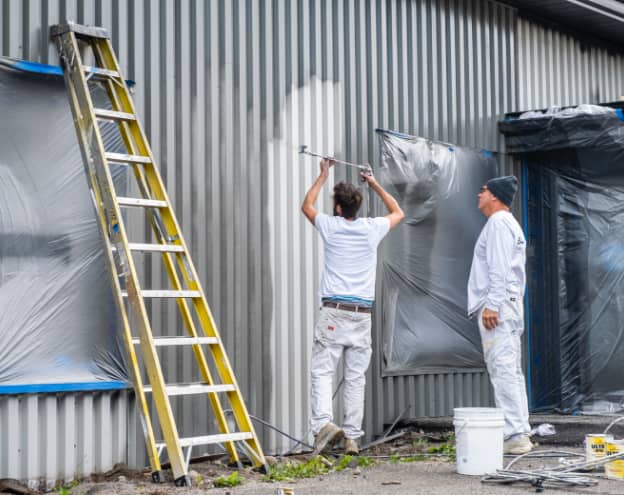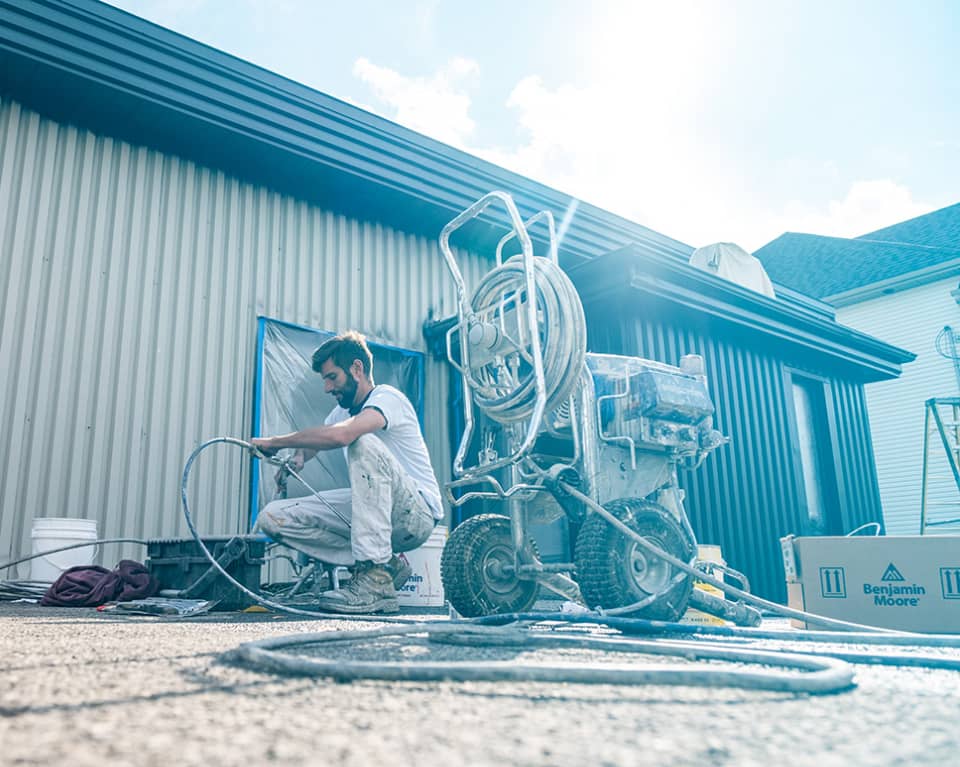Qualities of a commercial painter
Be it for repaints or new constructions, be it for commercial, residential, institutional or industrial buildings, mastering the various paint application techniques is both a science and an art.
Being a professional painter first requires a know-how for preparing surfaces such as aluminum, wood, iron, brick, and vinyl (PVC). An adequate surface preparation is essential to ensure optimal adhesion and durability of the new paint coats. An extensive knowledge of the different application techniques is also important to guarantee an impeccable finish. The professional painter knows how to manipulate the brush and roller, but also the pressure washer and paint sprayer.
The valued qualities of a commercial painter are:
Attention to detail
A commercial painter must have attention to detail as one of his natural qualities. Indeed, one can’t become attentive to detail and meticulous in only one day. As the professional is constantly performing precision tasks on various surfaces that are sometimes irregular, a professional must bring particular attention to each detail. His meticulousness also allows him to think of each corner of the house to be painted —doorframes, inside wardrobes, electric baseboards— nothing should be forgotten! He must also make sure his edging lines are straight, that there is no dripping on the walls, that the old paint color can’t be seen anymore through the new one, that all holes have been filled with mastic before painting and that there is no paint drop on the floor at the end of the job. Just like a master with his piece of art, a professional painter must be a perfectionist.
Punctuality
Painting the exterior sidings of a commercial building or the interior walls of a business location must always be completed within the given calendar. Painting is often the final task to do on a new construction. Thus, a commercial painter can’t start or finish late as this may cause to postpone the opening of a store for example. He must be quick in his task execution, keep in mind the calendar, know how to plan all the steps of the project, and also be able to know how much time the remaining job will take him.
Fitness
Considering that the commercial painter is performing movements, he must be pretty fit to keep constant high-quality standards from the beginning until the end of a painting project. His work asks for a good life hygiene together with physique conditions which can be developed through sports practice. He must prove to his clients his ability to work each day in the same manner and have a certain manual dexterity for more complex tasks that are asked. He must develop a resistance to repetitive movements for the arms and shoulders and know how to protect against back and knees pains. This is an important requirement for him and his company because satisfied clients are what will give the painter future references.
Curiosity
A professional building painter must be curious and attentive to observe both what he is doing and what the other painters in his team are doing. This way, a beginner painter can observe the work of an experienced painter to learn the best techniques. Also, each painter, no matter if he has a lot of experience or not, should take the time to review his work before the client’s final inspection. Moreover, a good building painter must keep up relating to the new products, equipment, and technologies offered on the market each year. In order to accomplish an impeccable work, a clever painter will get the best tools, use the most performing products and the more efficient techniques.


